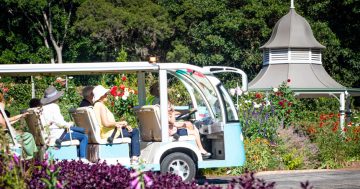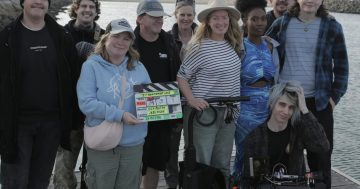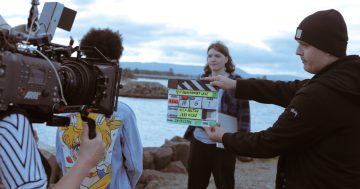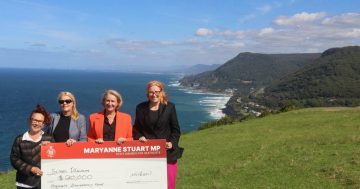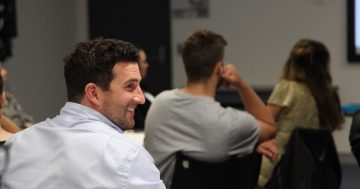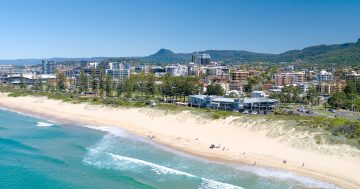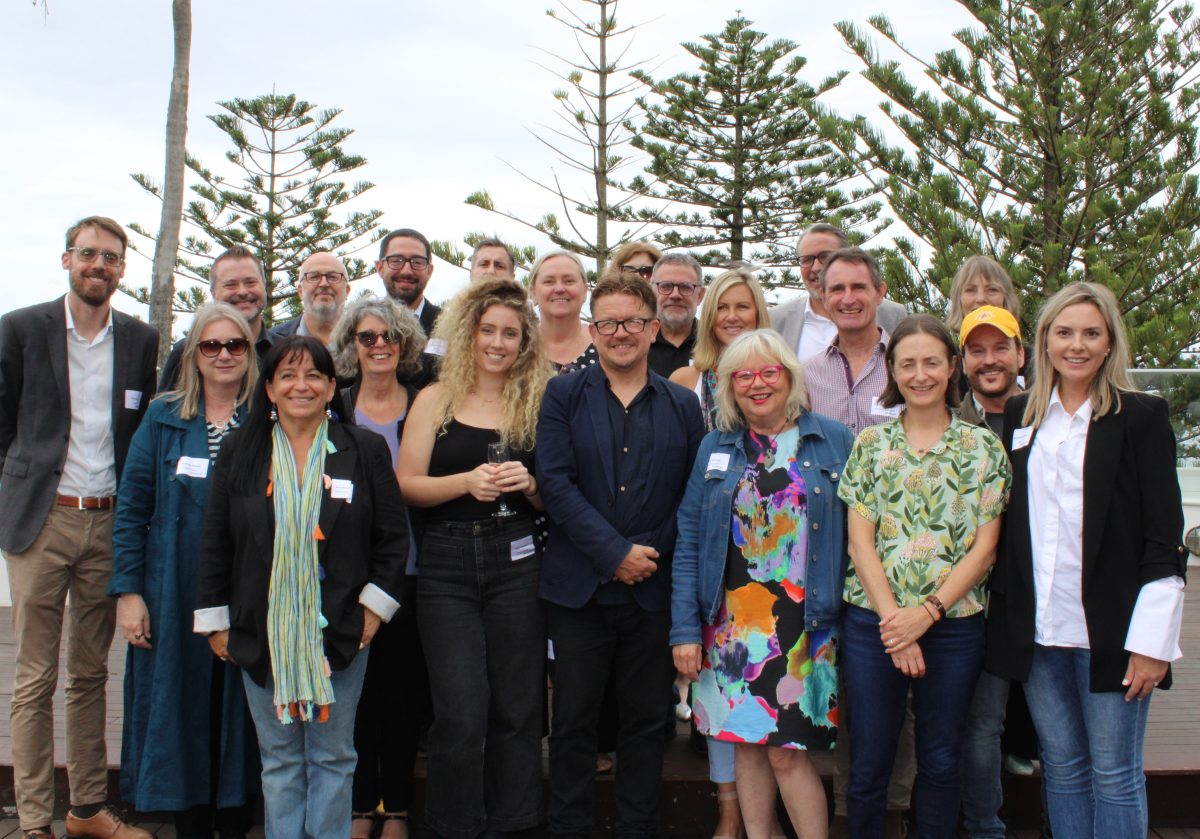
Disney, Netflix and Warner Bros were among the companies represented on the familiarisation tour. Photos: Keeli Royle.
Screen industry leaders from the world’s most renowned entertainment companies have flocked to the Illawarra for a tour showcasing the opportunities on offer if the region is selected as the backdrop of the next major film or television production.
High-level representatives from Warner Bros, Netflix and Disney were among those guided to the Illawarra’s most picturesque locations for an ”industry famil”, which aimed to connect stakeholders and familiarise key decision-makers with the area and keep it top of mind when selecting filming sites for upcoming projects.
“We did our first famil two and a half years ago and that directly resulted in two shows coming down here,” Screen Illawarra chair Nick Bolton said.
“Imagine if rather than five shows in three years, we did 10 in three years.”
Ian Collie, the founder of globally renowned and award-winning production company Easy Tiger, recently brought the series One Night to life through the Illawarra and believed it had great scope and potential.
“It’s great. I think it’s a little bit untapped,” Ian said.
“For a production company like ourselves it just offers, in terms of location, it has a bit of everything – from the escarpment to coastal, the city and suburban, but it’s all nicely compact and centralised.”
Ian has produced a broad range of content, from Colin from Accounts to The Twelve and Rake, and said choosing a location was often dictated by the script and story, with practicality also playing an important role.
“In contrast to Sydney, where you go from one location to another and spend so much time in traffic, and of course that’s money, here everything is located in one place and it’s only an hour and a bit from Sydney,” he said.
“All the resources are here. Obviously, we are aiming to hopefully increase the infrastructure in terms of an arts hub or a film and TV hub, or even a studio further down the track, so there’s areas of growth as well in terms of training more crew.”
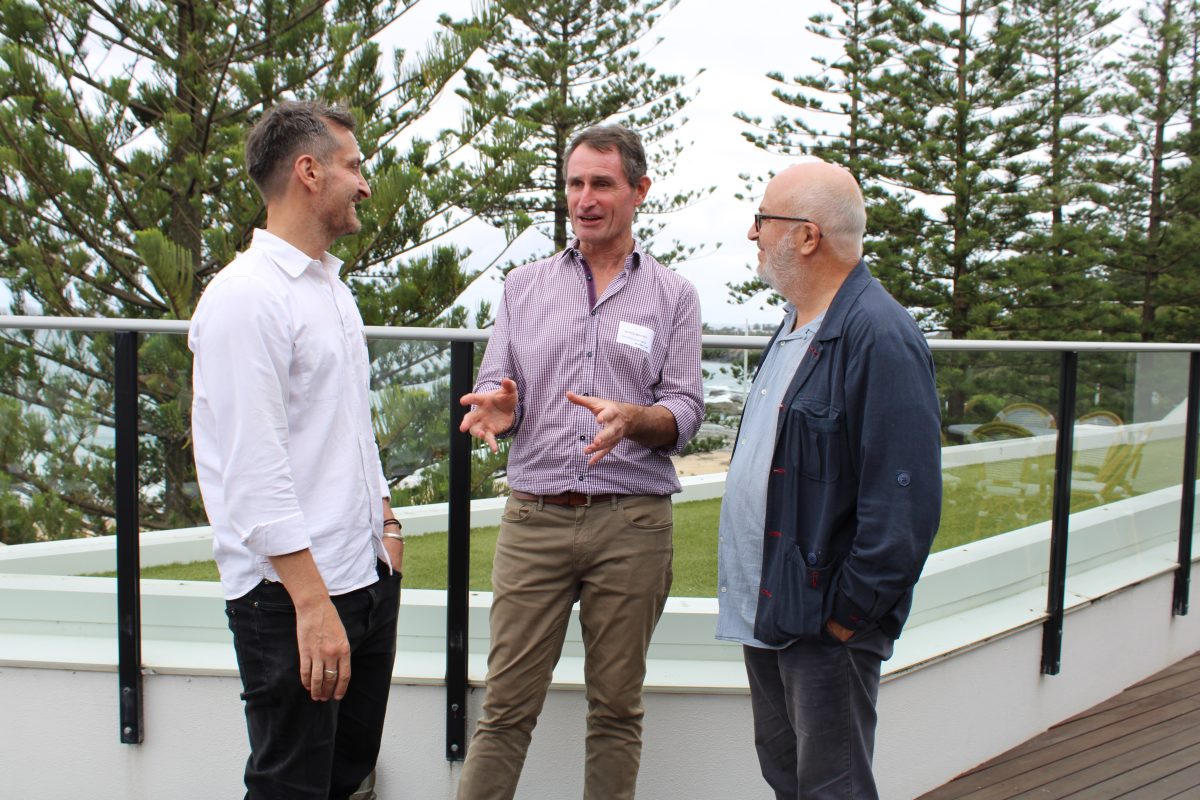
Warner Bros Australia head of production Simon Vaughton (left), Destination Wollongong general manager Jeremy Wilshire (centre) and Easy Tiger founder Ian Collie.
Head of production at Warner Bros Australia Simon Vaughton was impressed with the growth and development of the local industry and said it was a drawcard for productions.
“Often with productions, you have to bring in all your crew, so if you can hire that crew locally, that does save on accommodation and travel, so that’s something that we look for because that can be expensive,” Simon said.
“So to actually have a local base and a local industry that’s growing and thriving just adds to the attraction of filming here.”
Showcasing that local talent was something Nick Bolton was determined to do when pitching the region.
“In the showbags, they had a list of all the really highly qualified and experienced cast and crew that they didn’t know lived here,” he said.
“So maybe they don’t have to bring 150 people down here, they might only bring 100 people and give 50 people here jobs.”
With the region already having hosted the likes of Return to Paradise and Kingdom of the Planet of the Apes, Screen Australia head of industry development Ken Crouch said a proven record of good relationships could only help the case for more productions.
“It’s not just your crew or your cast that feed into a show when you come to town, you’re talking about security services, you’re talking about scaffolding services, you’re talking about a whole range of different industries that actually help feed the beast that is a film production,” he said.
“So that experience and local knowledge in a region can really help perpetuate that momentum that you need.”
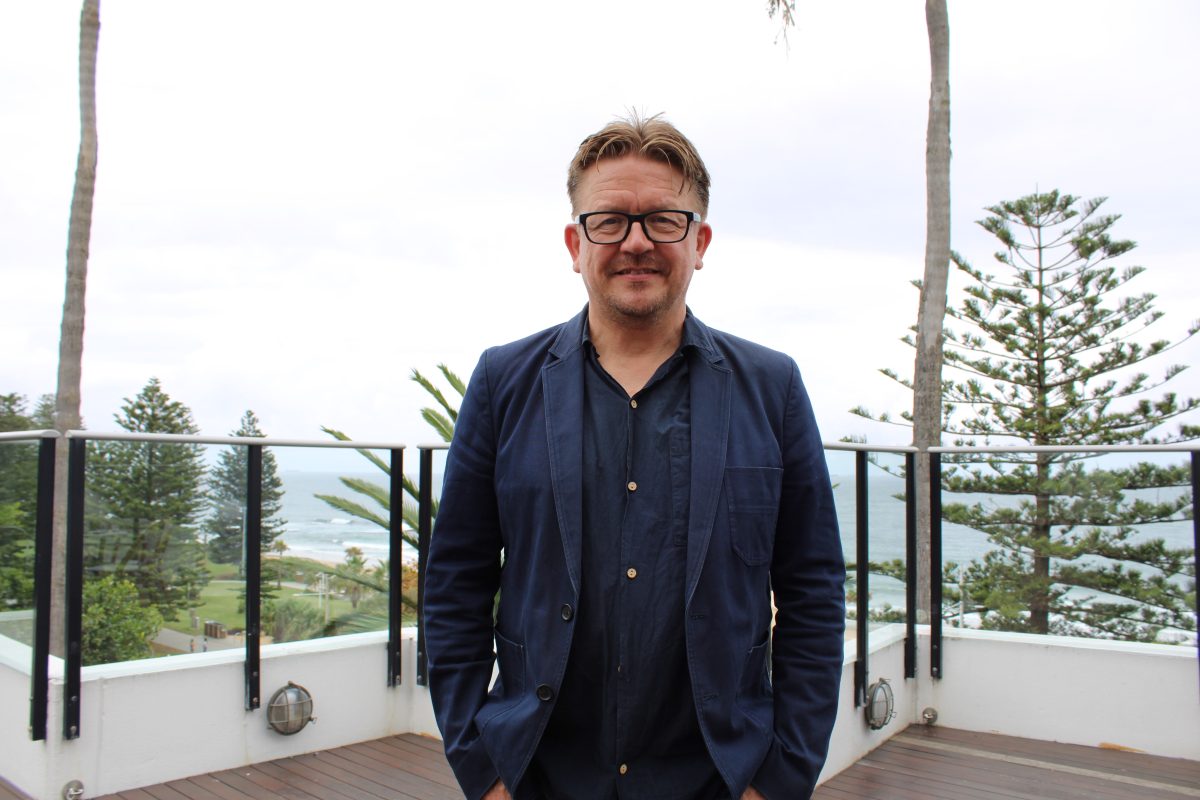
Screen Illawarra chair Nick Bolton showcased local talent when pitching the region.
It’s the utilisation of those other sectors that Destination Wollongong general manager Jeremy Wilshire is banking on to boost the local economy.
“The film industry brings with it an extensive amount of support industries, from caterers to electricians, set builders, sound and light, security hiring equipment,” he said. ”There’s a massive amount of direct and indirect economic impact for those productions.”
But Destination Wollongong, Wollongong City Council and the State and Federal governments will all have to be on board to ensure we put our best foot forward to make it as simple as possible for production companies.
“We’re also ready to listen in terms of what the region needs to do to be more film-friendly, from issuing permits to accommodation needs and flexibility within work times and spaces,” Jeremy said.
The famil, which was hosted by Screen Illawarra in conjunction with Screen NSW, Destination Wollongong and Wollongong City Council, was eight months in the making after Nick met Kiama’s Jane Corden, who manages a company specialising in production accounting, payroll, incentives and technology and is well connected throughout the industry.
“She was able to bring a much higher calibre of people,” Nick said. “She knows all these people personally, she’s very important to them, so without her this would not have happened.”
Now some key connections have been made, Screen Illawarra hopes to facilitate and support further projects coming to our shores.
“We’ve got a great relationship with Wollongong Council, but building on Kiama, Shoalhaven and Shellharbour,” Nick said. “We want to get better relationships with those councils so when they get an inquiry they can say, ‘Go and speak to Screen Illawarra, they can show you around and advise’.”
But he said more support for the volunteer-run organisation could help move the process along.
“I’m very grateful to Wollongong City Council and Screen NSW for their investment in us but it’s not enough, I want to get more state and federal funding, or more local funding,” he said.
“I want to get a full-time general manager so they can do the development side and go and talk to all these people on a quarterly or monthly basis.”








